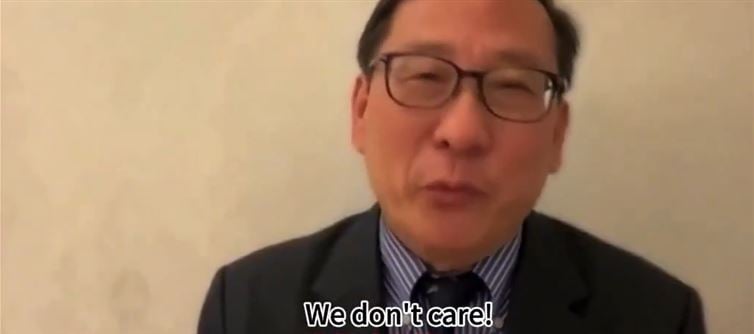
When China’s veteran diplomat Victor Gao shrugged off warnings that beijing would “lose the U.S. market” with the calm of a monk and the confidence of an emperor —
“We don’t care… The world is big enough that the U.S. is not the totality of the world’s market.”
— It wasn’t just a quote.
It was a mic drop moment in global economics.
Because that one line summed up the new world order:
America still thinks it’s the center of gravity.
But China’s been quietly redrawing the orbit.
🌍 1. The Export Boom No One Saw Coming
September’s numbers didn’t just beat expectations — they humiliated predictions.
Exports rose. Imports surged at their fastest pace since april 2024.
While analysts kept asking, “Can china survive without the U.S.?”
Beijing was already thriving with Africa, Latin America, and ASEAN.
The message?
Decoupling isn’t China’s fear — it’s America’s fantasy.
🧭 2. “Middle Kingdom” — Not Just a Name
China’s word for itself, Zhōngguó (中国), literally means “The Middle Kingdom.”
It’s not geography. It’s psychology.
For centuries, china saw itself as the center of civilization — and Victor Gao just reminded everyone that this mindset never really left.
The U.S. might call it arrogance.
Beijing calls it history coming full circle.
🔥 3. The Great Pivot: From Wall Street to the World’s Streets
While Washington weaponized tariffs, china weaponized trade routes.
It built ports in Kenya, railways in Ethiopia, data cables in Brazil, and 5g networks in the Gulf.
While the U.S. chased sanctions, china chased supply chains.
The result?
Even without American consumers, beijing still sells — to everyone else.
The world used to depend on China.
Now, china depends on no one.
☣️ 4. The Dirty Secret of the “Green Future”
Here’s the part they don’t put in glossy trade reports —
China’s rise didn’t come from brilliance alone.
It came from sacrifice.
Human. Environmental. Generational.
Since the 1980s, beijing has followed one brutal national mantra:
“Monopolize, even if it means pollution.”
Rare earths — the lifeblood of modern tech, EVs, and solar panels — became a “strategic resource.”
While America’s Mountain Pass mine shut down over toxic leaks,
China kept its refineries running — acid waste, radioactive sludge, and all.
🧪 5. The Toxic Cost of Global Dominance
china didn’t just win the rare-earth war; it outlasted everyone else’s conscience.
Low environmental standards, government-backed dumping, and ruthless efficiency turned it into the world’s refinery of everything.
The planet got its batteries, magnets, and clean tech.
China got the waste lakes of Inner Mongolia — glowing green under an eternal smog.
💸 6. The Hypocrisy of the West
Meanwhile, Western powers preach sustainability while importing cheap, dirty minerals from Baotou —
because “green” looks better when the pollution happens offshore.
Every EV battery, every wind turbine, every smartphone — It is powered by China’s toxic triumph.
We want clean energy. china makes the mess. Everyone looks away.
🧨 7. Victor Gao’s “We Don’t Care” Isn’t Arrogance — It’s Evolution
For decades, china chased the U.S. dream.
Now it’s stopped chasing — because it caught up.
The West says “decoupling.”
Beijing says “replacement.”
The empire didn’t collapse — it pivoted to multipolar dominance.
When Gao says “We don’t care,” he’s not dismissing America.
He’s declaring independence from it.
🌱 8. The Future Will Be Cleaner — But Not China’s Doing
china may dominate the present,
but the cost it paid — in poisoned rivers, broken lungs, and ghost towns —
will catch up.
Because a system built on sacrifice eventually collapses under its own weight.
The next superpower won’t just be productive.
It’ll be humane, sustainable, and decentralised.
And that’s the revolution beijing didn’t plan for.
⚖️ 9. The Real Lesson
China’s model worked — but it wasn’t free.
The rare-earth monopoly is a masterpiece of strategy,
and a monument to human cost.
The West lost manufacturing.
China lost its air.
Both think they won.
But the world knows:
There’s no victory when progress poisons the planet.
🚨 FINAL TAKE:
Victor Gao’s “We don’t care” may sound defiant,
But beneath it lies the fatigue of a nation that’s paid too high a price to prove it can.
The future of power won’t belong to those who export the most — but to those who exploit the least.




 click and follow Indiaherald WhatsApp channel
click and follow Indiaherald WhatsApp channel